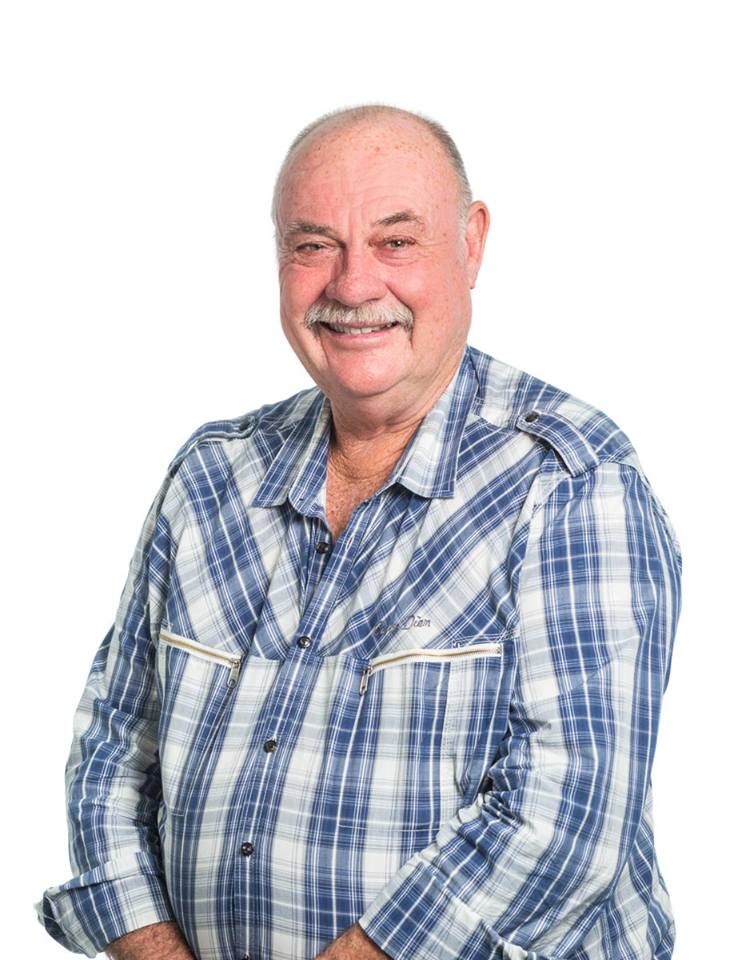News
Australia’s croc hunter is unlikely gay rights champion

— As a self-described straight crocodile hunter from the country’s rugged and socially conservative far north, Australian lawmaker Warren Entsch doesn’t fit many people’s mould of a gay-rights activist. (Photo: Warren Entsch MP/Facebook)
CANBERRA, Australia — As a self-described straight crocodile hunter from the country’s rugged and socially conservative far north, Australian lawmaker Warren Entsch doesn’t fit many people’s mould of a gay-rights activist.
But if results of a nationwide postal survey this week reveal that most Australians want same-sex marriage legalized, it is Entsch — from the country’s leading conservative party, no less — who plans to introduce legislation that could make it a reality as soon as December.
Entsch, 67, emerged as an unlikely champion for gay rights back in 2004, when he complained that the government had amended federal laws to make clear that marriage exists only between a man and a woman.
He was the only lawmaker from his conservative Liberal Party or the centre-left opposition Labor Party to speak out, earning him the moniker “progressive redneck” from bemused media outlets.
“I got literally thousands and thousands of communiques, not from the gays, but from the broader community — family, friends and relatives of gays — saying that if a healthy heterosexual, far north Queensland crocodile-farming, bull-catching Liberal can speak out on behalf of my gay friend or relative, we want to come out too,” Entsch said.
Gay-rights advocates say Entsch’s championing of the issue was instrumental in getting Australia to change around 100 federal laws almost a decade ago.
Under the changes, gay couples in long-term relationships were treated the same as married couples on issues such as taxation, pensions and welfare payments. But removing discrimination against gays from the Marriage Act remained a step too far for most lawmakers.
Rodney Croome, a veteran gay-rights campaigner, said no lawmaker deserves more credit than Entsch for pushing the issue — even though Parliament now has several openly gay lawmakers.
“A key to Warren’s success is that he’s an unlikely champion,” Croome said. “It’s meant that his fellow Liberals are less able to dismiss him as having a personal interest in it, and it effectively means that they have to think of the principles involved.”
But Entsch hasn’t managed to win over much of his own party, which has long opposed same-sex marriage.
Fellow Liberal lawmaker Craig Kelly, a vocal same-sex marriage opponent, sees Entsch as a political maverick.
“We don’t want to make jokes about our far north Queensland cousins, but often they’re an unusual bunch,” Kelly said.
Entsch said his interest in gay rights was sparked by an Outback ranch cook he knew in the 1970s who moved to Sydney for gender reassignment surgery and became a female doctor.
Entsch retired from politics in 2007 but returned for 2010 elections, where he unseated the Labor Party candidate.
“Everybody told me I was taking a risk up here. It’s a place
full of rednecks,” he said, referring to his
149,000-square-kilometre (58,000-square-mile) electoral district,
which extends from the city of Cairns, where he lives, north to
islands off Papua New Guinea.
“I don’t do it for politics. I do it because it’s right,” he said.
In 2015, then-Prime Minister Tony Abbott, a same-sex marriage opponent, committed his conservative government to holding a compulsory nationwide vote to decide whether the unions should be legal.
He was replaced weeks later by current Prime Minister Malcolm Turnbull, who supports marriage equality and opposed the public vote but eventually agreed to it in a deal with party powerbrokers.
The Senate refused to fund a compulsory vote, however, so the government opted for a voluntary postal ballot. Critics say it is unlikely to accurately reflect public opinion.
Almost 79 per cent of more than 16 million Australian voters posted ballots before the two-month survey closed.
The result will be announced on Wednesday. If a majority calls for marriage equality, Parliament will vote on a bill in the final two-week session of the year.
Passage is by no means certain even if a vote goes ahead.
Kelly said he would vote against it in Parliament if a majority of responses in his outer-Sydney electoral division opposed reform.
Other opponents have said they would vote against legalizing gay marriage in Parliament regardless of the survey result.
The United Nations Human Rights Committee on Friday criticized Australia for putting gays and lesbians “through an unnecessary and divisive public opinion poll.” The committee called on Australia to legislate for marriage equality regardless of the survey’s outcome.
A survey commissioned by Sydney University’s U.S. Studies Center and published on Thursday found support for gay marriage was stronger in Australia than in the United States, where it has been legal since 2015.
The poll by survey company YouGov found 60 per cent of Australians support same-sex marriage, 32 per cent oppose it and 8 per cent were undecided.
In the United States, 48 per cent of respondents supported marriage equality, 40 per cent oppose it and 12 per cent were undecided.
The online survey of 1,009 Australians and 1,107 Americans in late October has a 3 percentage point margin of error.
Entsch called the 122 million Australian dollars ($94 million) being spent on the survey an “appalling waste of money.” He and most gay-rights advocates wanted Parliament to vote on legislation straight away.
Entsch said with opinion polls in recent years showing most Australians support gay marriage, no one should accept the result of the postal survey if the answer is “no.”
“If the answer is ‘no,’ we need to analyze it, because I believe it would be flawed,” he said.





















